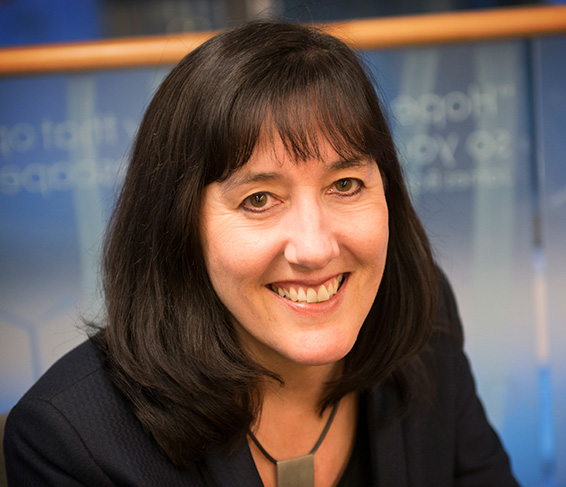
Q&A with Sue Morris, PsyD
July 24th, 2020
Sue Morris, PsyD is a Clinical Psychologist and Director of Bereavement Services at Dana-Farber Cancer Institute. She is also an Instructor in Psychiatry at Harvard Medical School and Course Faculty for Palliative Care Education and Practice.
Tell us about your background.
I grew up about an hour west of Sydney, Australia, in the Blue Mountains – named because they look blue because of the haze from the oil of the eucalyptus trees. My mum, sister and brother and their families still live there. As an ‘Aussie’, I spent my childhood ‘bush-walking’, playing field hockey and swimming, either in our backyard pool or going to the beach. Christmas Day always involved eating a huge hot roast meal in the air conditioning as it could be 90F+ outside, followed by a swim or ‘dip’ in the pool.
During my undergraduate degree, I lived at home and commuted to Uni in Sydney by train, similar to the commuter rail here. That’s what most students do unless they come from too far away. For my graduate studies, I lived at Bondi Beach and after class, I would head to the beach for a surf.
After I got married, I lived in Sydney for a few years before moving to Hong Kong, where we spent two years. This was a fantastic experience; we’d travel to different places in China, Singapore, Vietnam and Thailand on weekends.
 The Three Sisters – Blue Mountains National Park
The Three Sisters – Blue Mountains National Park
 Mount Solitary - Blue Mountains National Park
Mount Solitary - Blue Mountains National Park
 Bondi Beach, Sydney
Bondi Beach, Sydney
What is the most helpful advice that you have received?
I can think of two pieces of advice that have stuck with me over the years:
1. “Life is for the living” – my father told me this and I think it’s really important to keep in mind, especially in the type of work we do.
2. “No-one should have to worry alone” – in my very first position as a psychologist on a community based psychiatric team in Sydney when I was 25 and inexperienced, I was assigned a buddy for the first six months or so. Her name was Florence and she was a psych nurse. She would debrief with me especially the difficult cases, and taught me how to take care of myself so that I didn’t take my work home. Her mentorship laid the foundation for my interest in clinician self-care. Then, in 2010, when I moved to DFCI, Susan Block, MD gave me the same piece of advice, which is now my advice for anyone starting out in this field.
How did you start in bereavement?
I began working with bereaved individuals and families in my very first job back in Sydney. Gradually over the years, I became more and more interested in grief and sought out additional training. I always remember thinking how odd it was that health professionals receive so little training in bereavement. I started my own ‘grief and loss’ private practice in Sydney in the late 1990s, which was quite unusual at the time. When I first moved to the USA – I’ve been here twice – I worked as a bereavement coordinator in a hospice and wrote my first self-help book about grief, drawing on my experiences there with bereaved families. I can’t really imagine doing anything else now.
Tell us about your job and what you'd like others to know about your work.
Dana-Farber has been the highlight of my career and I feel very fortunate to have become the first director of bereavement services back in 2010. I loved developing the program, supporting bereaved individuals and especially, teaching. I would now like to spend more time focusing on clinician well-being, finding time to finish my ‘self-care tool-box’.
While we all know the importance of supporting bereaved individuals and families, unfortunately the pandemic has highlighted the lack of bereavement care in our health system. Bereavement is an unmet public health issue and there is an urgency now more than ever, for our society to invest more in bereavement care. Along with Amanda Moment, LICSW and Jane deLima Thomas, MD, I wrote about this piece recently in the Journal of Pain and Symptom Management.
